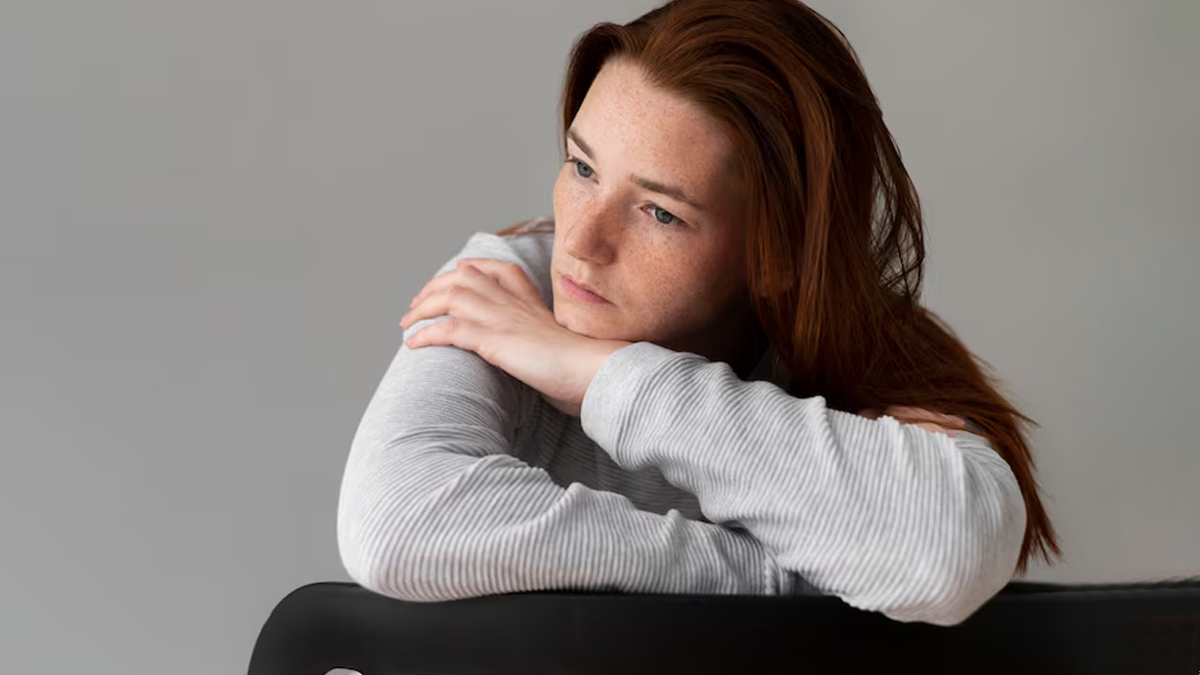
Have you been feeling unusually irritable, anxious, or emotionally up and down since starting birth control pills? You’re not alone. While these pills are a reliable method for preventing pregnancy and regulating menstrual cycles, they can sometimes affect how you feel emotionally. One moment, you're perfectly fine, and the next, even a small inconvenience sets you off. Or perhaps you’ve noticed a lingering sense of sadness that wasn’t there before. Could your birth control be the culprit?
Table of Content:-
Well, to get a better understanding of birth control pills and mood swings, the OnlyMyHealth team spoke to Dr Neha Khandelwal, Director of the Department of Obstetrics and Gynecology at Cloudnine Group of Hospitals, New Delhi.
Dr Khandelwal explains, “Birth control pills are designed to balance reproductive hormones, but these same hormones interact with the brain's chemistry, which can sometimes affect emotional stability.”
Here’s what you should know about birth control pills and their potential impact on mood.
How Birth Control Pills Work

According to the National Institute of Health, birth control pills primarily contain synthetic hormones like estrogen and progestin. These hormones prevent ovulation, thicken cervical mucus to block sperm, and thin the uterine lining to prevent implantation.
While these actions ensure reliable contraception, they also influence neurotransmitters in the brain, such as serotonin, which regulate mood. “Hormones like estrogen can elevate feelings of well-being, but fluctuations or imbalances caused by synthetic hormones may have the opposite effect,” Dr Khandelwal adds.
Also read: Emergency Contraceptive Pill: All You Need To Know
The Link Between Hormones and Emotions

Hormones are closely tied to emotional well-being. Estrogen often promotes happiness, while lower levels or sudden changes in its concentration can result in mood alterations. Progestin, a synthetic counterpart of progesterone, is known to have a sedating effect. In some individuals, it may increase feelings of irritability, anxiety, or depression.
“Not everyone experiences mood changes,” says Dr Khandelwal. “However, those with a history of mental health conditions may be more sensitive to these hormonal shifts.”
Signs Your Pill May Be Impacting Your Mood
Mood swings linked to birth control pills can manifest in various ways, such as:

- Irritability: Feeling easily annoyed or frustrated.
- Depression: Persistent sadness or a sense of hopelessness, particularly for individuals prone to depressive episodes.
- Anxiety: Heightened feelings of worry or tension.
- Emotional Instability: Rapid emotional changes, such as moving from happiness to sadness in a short span.
For many, these symptoms subside as the body adjusts to the medication. However, for some, they persist and require intervention.
Also read: How Do Contraceptive Pills Cause Breast Cancer?
Managing Mood Swings
If you suspect your birth control pill is affecting your mood, consider these strategies:

Allow Time for Adjustment
Hormonal changes take time to stabilise. If you’ve recently started a new pill, give your body a few months to adapt.Explore Alternative Pills
Dr Khandelwal advises, “If one type of pill causes mood swings, switching to another with a different hormonal composition or dosage might help. Progestin-only or low-dose estrogen pills can sometimes reduce these effects.”Non-Hormonal Options
If hormonal methods consistently disrupt your emotional well-being, non-hormonal alternatives like copper IUDs could be a better fit.Adopt a Healthy Lifestyle
Regular exercise, a balanced diet, and stress-management techniques like yoga or meditation can support emotional stability.Consult a Specialist
“If mood swings are severe or interfere with daily life, consult a healthcare provider,” advises Dr Khandelwal. “Together, you can determine the best course of action, whether it’s switching pills or exploring other contraception methods.”
When to Seek Help
Mood swings are often manageable, but it’s important to recognise when they require medical attention. Dr Khandelwal explains, “If emotional changes escalate to severe anxiety, depression, or thoughts of self-harm, seek help immediately. Hormonal birth control can sometimes aggravate underlying mental health issues.”
Conclusion
While birth control pills remain a safe and effective choice for many, understanding their potential side effects, including mood changes, is crucial. With time, lifestyle adjustments, or a switch in contraception, most individuals can find a method that suits both their physical and mental health.
Dr Khandelwal emphasises, “Open communication with your doctor is key. Don’t hesitate to voice your concerns or explore alternatives. There’s always a solution that can work for your unique needs.”
Also watch this video
How we keep this article up to date:
We work with experts and keep a close eye on the latest in health and wellness. Whenever there is a new research or helpful information, we update our articles with accurate and useful advice.
Current Version